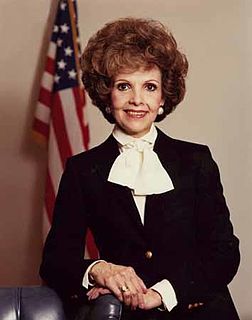A Quote by Douglas Sirk
So slowly in my mind formed the idea of melodrama, a form I found to perfection in American pictures. They were naive, they were that something completely different. They were completely Art-less.
Related Quotes
In Yugoslavia we were told we were not only naive idealists in wanting war criminals to be prosecuted but that we were actually standing in the way of a ceasefire which would save more lives. The idea was that, by giving amnesty to these ruthless warmongers, you would give them an incentive to stop killing. I found that incredibly naive, never mind cynical. Having been on the ground and having met with these ruthless killers, I knew the only thing they understood was the language of force.
Do you remember when you were 10 or 11 years old and you really thought your folks were the best? They were completely omniscient and you took their word for everything. And then you got older and you went through this hideous age when suddenly they were the devil, they were bullies, and they didn't know anything.
In a different moment, in the 60s and 70s, I did believe we were going to succeed - that we were going to create a revolution, that America was going to be a completely transformed nation state and that there would be an amazingly different set of beliefs; that this country would reflect. And I thought that that was the fulfillment of the American democratic dream and I believed in it passionately.
I wouldn't say the anthropologists were making art, but they were definitely justifying their practices with very personal reasoning, passion, and they were also experimenting with form. There was a sense of trying to be as sincere as possible, whether you were investigating something far away from you or very close.
It never occurred to me that there were so many wonderful photos that had been orphaned and were out there in the world, waiting to be found. Over time, I found a lot of very strange pictures of kids, and I wanted to know who they were, what their stories were. Since the photos had no context, I decided I needed to make it up.
I think I was lucky to come of age in a place and time - the American South in the 1960s and '70s - when the machine hadn't completely taken over life. The natural world was still the world, and machines - TV, telephone, cars - were still more or less ancillary, and computers were unheard of in everyday life.
Norman Rockwell spent his career painting pictures that helped people understand their own feelings...pictures that enriched their own experiences and celebrated their own lives. But the art establishment branded him an 'illustrator', a sentimental one at that. Real artists, they said were doing art for art's sake, not for the sake of the bourgeois public. Real artists were putting swiggles, smears or daubs of paint on the canvas. They were doing 'innovative' and 'creative' work. If they were hideous and grotesque; we know that's what life really is!






































